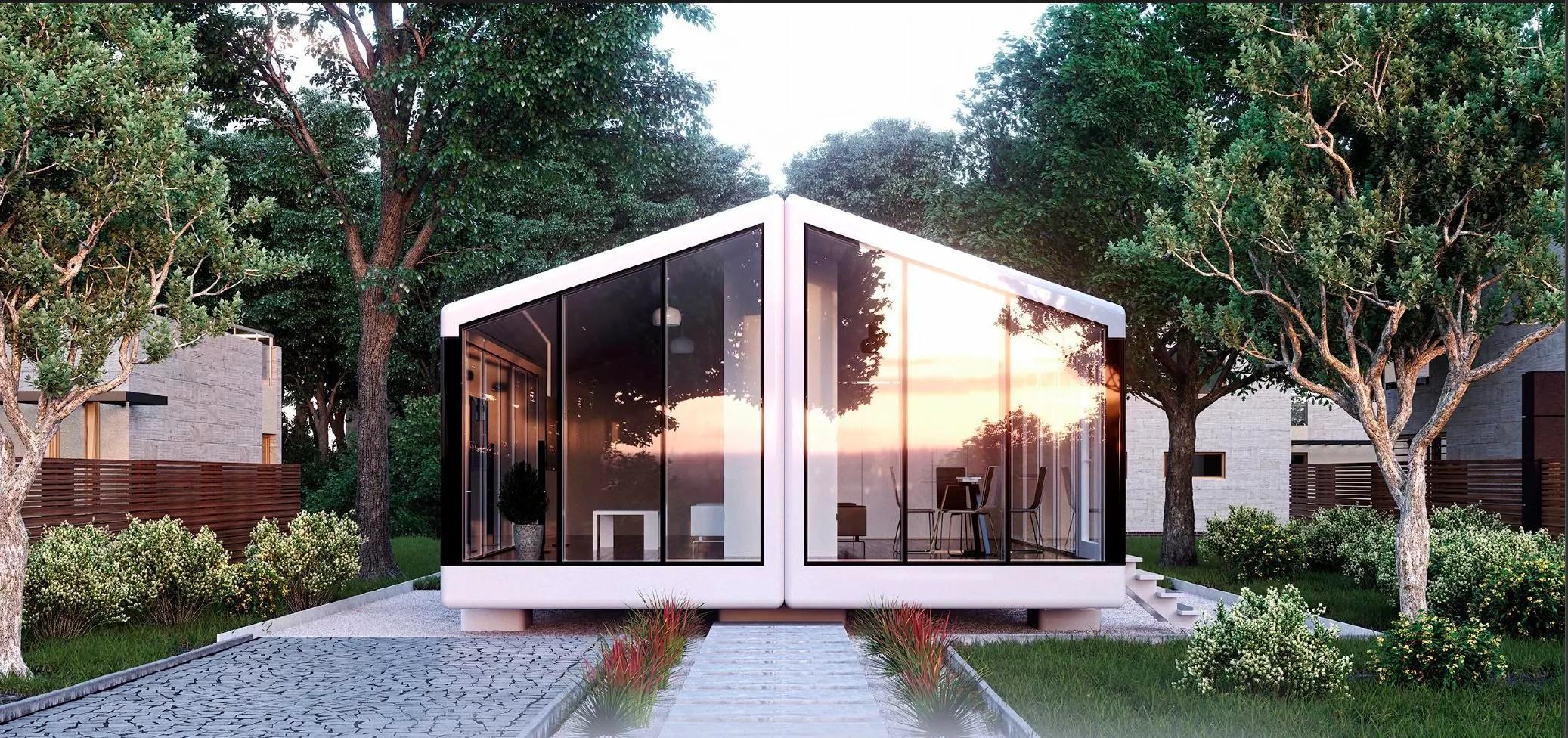Revolutionizing Housing: Aeronautical Engineering Meets the Future of Living

Imagine a home that incorporates the cutting-edge engineering of spacecraft with the comfort and functionality of modern living. That is what lies behind haus.me, the pioneering company that is rewriting the rules of housing with prefabricated, off-the-grid structures. Inspired by aeronautical and yacht engineering, haus.me has been able to create homes that are energy-efficient, self-sufficient, and built to withstand extreme environmental conditions, all while maintaining sleek and futuristic design.
It is the brainchild of a Ukrainian engineer named Max Gerbut as a housing market redefine exploration regarding materials and technologies. Engaged with NASA and the Berkeley University MARS 3D printing project, Gerbut and his team developed in-house a proprietary carbon polymer composite that's very lightweight yet extremely strong: a base for homes that make them survive hurricanes, and the coldest cold winters.
The philosophy behind haus.me revolves around overengineering for the ultimate reliability of the house. It features houses with insulation of R80, thus providing an excellent energy efficiency rating. Such a net-zero structure generates enough energy to power itself and consequently reduces the costs as well as the environmental impact. On a bitterly cold day at -20 degrees Fahrenheit, an 800-square-foot haus.me home uses only 27 kWh compared to a conventionally built home's 165 kWh. It uses just 17 kWh in the hottest of weather, making it one of the most energy-efficient houses in the market.
What is so unique about haus.me is that it is highly accessible and very easy to install. It does not require any foundation, site preparation, and no complicated permits. According to Gerbut, the company touts the efficiency of a 120-square-foot microhaus.me model that installs on virtually any surface-whether gravel, sand, or even rooftops-under an hour. The process is streamlined in such a way that if this cannot be done, free installation comes with the deal. A completed model fully arrives pre-furnished with appliances, utensils, and even dishes. Price varies by model, between $35,000 and $90,000.
The simplicity of the manufacturing process is another hallmark of haus.me. With over 215 global manufacturing partners, the company produces hundreds of components that are assembled in a centralized facility. Gerbut likens the process to car manufacturing, where every detail, down to the screws, is pre-designed to meet building codes. This industrial approach reduces labor costs to just 9% of the total price, rather than the industry standard of 65%, leaving more of the budget for advanced materials and technology.
Haus.me homes are not only practical but also versatile. They range in size from 400 to 1,600 square feet, catering to a variety of needs. These structures provide an adaptable solution to housing challenges whether it is for glamping sites, island resorts, or permanent residences. Their off-grid capabilities and lack of traditional permitting make them very attractive for remote or unorthodox locations. This flexibility combined with cost savings and rapid deployment is redefining the way people think about home ownership.
Regulatory Landscape The regulatory landscape is another area where haus.me is blazing trails. By designing universally approved structures, the company evades most of the challenges attributed to local building codes. This efficiency in compliance review accelerates development and at the same time reduces pressure on local authorities. But with increased popularity, the question has been whether these types of houses affect community planning and burden shared utilities. Nevertheless, the innovative approach from haus.me is seen as one of the solutions to the housing affordability and supply shortage problems, especially in regions with high regulatory barriers.
Despite its many advantages, the concept of prefabricated, off-the-grid homes still stirs skepticism. Gerbut admits that the challenge to convince consumers about the feasibility and reliability of such homes is constant. Haus.me bridges this gap by offering Airbnb stays in California, Florida, and Oregon where guests get to experience the future of housing. With near-perfect ratings from dozens of reviewers, these stays are helping to shift perceptions and build confidence in the product.
Gerbut envisions a world where homes can be delivered anywhere, even on undeveloped land, providing a sustainable and self-sufficient living solution with zero bills. By merging cutting-edge technology with a deep understanding of global housing challenges, haus.me is not just building homes—it's building the future. For those ready to embrace this revolution, the next chapter in housing innovation is already here.



